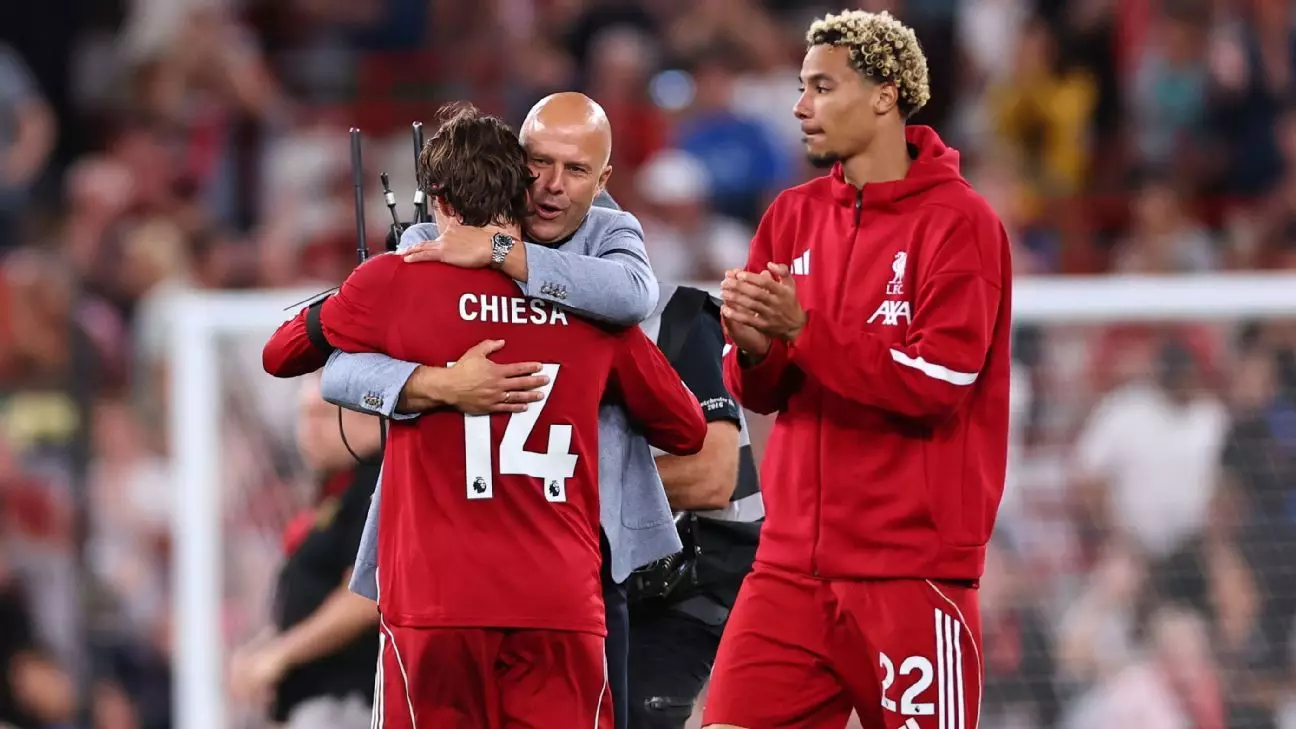Liverpool’s recent transfer activity reveals a club that is weighing strategic patience over impulsive spending. After splurging over £300 million this summer on high-profile signings like Florian Wirtz and Hugo Ekitike, the Reds’ management appears cautious about overextending, even as whispers of more additions circulate. Manager Arne Slot’s comments suggest a philosophy rooted in careful assessment, emphasizing quality over quantity and underscoring the importance of acquiring players who truly elevate the squad rather than just filling gaps.
In the modern football landscape, where transfer windows frequently turn into frenzy, Liverpool’s approach arguably reflects a matured understanding of building sustainable success. Rather than rushing to reinforce every weak position at the first sign of trouble, they seem committed to targeted acquisitions—players who can seamlessly integrate and address specific tactical needs. This discerning method is a testament to Liverpool’s long-term vision, emphasizing craftsmanship and squad harmony over short-term fixes.
Balancing Ambitions with Squad Satisfaction
What stands out from Klopp’s team is the man-management philosophy that underpins their transfer stance. Slot’s comments reveal a player-centric focus, highlighting that squad happiness and balance take precedence. His preference for a squad with two players per position indicates that he values depth but not at the expense of chemistry or morale. This reflects an understanding that over-crowding can cause internal competition to spill into dissatisfaction and unrest—factors that undermine team cohesion.
Furthermore, Liverpool’s reluctance to dwell on specific targets publicly demonstrates a strategic restraint. Instead of fueling transfer speculation, they aim for a calm, focused approach—waiting for the right players who embody their standards and tactical requirements. Their willingness to bring in new talent only when it aligns perfectly with their vision—like Giovanni Leoni—suggests a disciplined mindset, emphasizing quality over mere acquisition.
The Financial and Emotional Toll of Player Departures
Despite their investing prowess, Liverpool faces the sobering reality of high-profile departures, including Luis Díaz, Darwin Núñez, and Jarell Quansah. These exits create noticeable gaps in the squad, especially in attacking options and central defensive reliability. Management’s challenge is not just to replace these players but to restore confidence and fluidity in the team’s core functions amid such transitions.
Financially, the club has achieved a remarkable feat by generating over £200 million from outgoing transfers—funds that arguably provide a buffer for further strategic moves. However, the emotional and tactical impact of this turnover cannot be underestimated. Fans and players alike await new signings that can restore stability and spark renewed ambition.
The Hostile Environment at St. James’ Park and Strategic Preparation
Upcoming fixture against Newcastle United underscores the importance of mental resilience and tactical discipline. Slot’s acknowledgment of the intensity at St. James’ Park underscores Liverpool’s awareness of the fierce competition in the Premier League. With an environment described as ‘hostile,’ the Reds must remain focused on execution, leveraging tactical discipline rather than chasing the chaos that often accompanies away fixtures.
While injuries to key defenders and attackers like Jeremie Frimpong are setbacks, the squad’s depth and Slot’s strategic planning can offset these challenges. The team’s preparation reflects a mature understanding of what’s required to succeed in one of the league’s most demanding venues, emphasizing not just individual brilliance but collective resilience.
A Forward-Thinking Approach to Building a Legacy
At its core, Liverpool’s transfer approach signals an aspiration beyond immediate results—aiming to cultivate a squad capable of sustained excellence. They demonstrate that patience, precision, and high standards shape a sporting philosophy that refuses to settle for mediocrity. While the club remains open to a transformative signing if it fits their criteria, they consciously avoid impulsiveness, instead trusting their scouting network and holistic identity.
This strategic restraint, combined with financial robustness and a focus on team harmony, positions Liverpool as a club that values long-term success over fleeting fame. It is a reminder that building a formidable team isn’t solely about accumulating star names but about creating a cohesive system that can adapt, evolve, and conquer challenges season after season. This philosophy may well dictate their trajectory in an increasingly unpredictable football world.


Leave a Reply